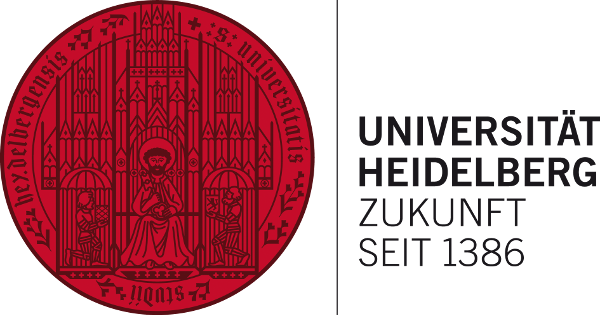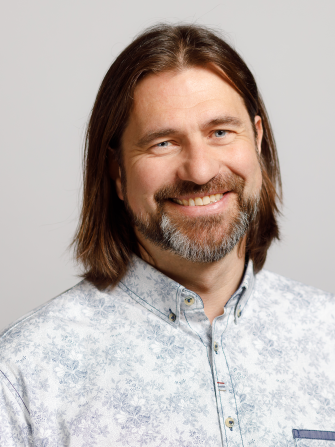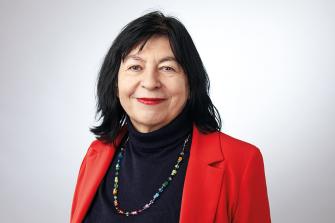
Five researchers at Heidelberg University are receiving valuable funding from the European Research Council (ERC) in the form of an ERC Advanced Grant. They include chemist Prof. Dr Andreas Dreuw and neuropharmacologist Prof. Dr Rohini Kuner, who carry out their projects – in theoretical and computational chemistry, and in pain research, respectively − at the Interdisciplinary Center for Scientific Computing and the Medical Faulty Heidelberg. The ERC has allocated funding for them totalling around five million euros. Likewise members of Ruperto Carola are neuropsychologist and clinical psychologist Prof. Dr Herta Flor, neuroscientist Prof. Dr Hannah Monyer and neurologist Prof. Dr Michael Platten, who have each earned an ERC Advanced Grant for their projects at the Central Institute of Mental Health in Mannheim and the German Cancer Research Center in Heidelberg. These awards total nearly seven million euros.
PROF. DR ANDREAS DREUW
The ERC project “High-Performance Computational Photochemistry and Spectroscopy” (HIPERCOPS) headed by chemist Andreas Dreuw deals with calculating electronically excited states of molecular systems in order to be able to simulate photochemical processes on the computer. While computational photochemistry delivers exact results and reliable predictions for smaller molecular systems, Prof. Dreuw says there is a lack of efficient, sufficiently accurate methods to apply to larger molecular assemblies. This gap is to be closed by the HIPERCOPS research. Prof. Dreuw and his team are working on highly efficient new computational methods based on the Algebraic Diagrammatic Construction (ADC) family of methods. The scientists want to develop innovative, genuinely parallel approaches and solution strategies for ADC methods that can be used to calculate electronically excited states on modern high-performance computer architectures. This research, receiving approximately 2.5 million euros in funding, aims to create the foundations for optoelectronic devices, molecular solar thermal energy conversion or solar-driven nanomachines, in order to use solar energy efficiently. Andreas Dreuw has been Professor of Theoretical and Computational Chemistry at Heidelberg University since 2011 and heads an eponymous research group at the Interdisciplinary Center for Scientific Computing. Last year he was elected Vice-Rector for Research and Digitalisation at Ruperto Carola.

Andreas Dreuw | © Tobias Schwerdt
PROF. DR ROHINI KUNER
With her research in the context of the ERC project “Uncovering the Cortical Cellular Basis of Specificity and Chronicity of Pain” (PAIN ENSEMBLES), neuropharmacologist Rohini Kuner explores the question of which neuronal ensembles – coactive neurons intermingled in networks – contribute to the specificity and chronicity of pain. The scientist and her team want to identify neocortical pain ensembles that delineate pain from other sensory percepts, cognitive functions or emotions. The aim is to determine molecular signatures, connectivity and coordinated activity in order to understand the functional relevance of these networks for pain. In their work, the researchers will also examine plasticity – the “rebuilding” and “rewiring” of neuronal ensembles – in the transition from acute to chronic pain and to address whether these changes can be reversed, e.g. through non-invasive stimulation of the neocortex and behavioural approaches to achieving pain relief. The ERC is making funds amounting to around 2.5 million euros available. Rohini Kuner has taught and done her research as Professor of Pharmacology and Toxicology at the Medical Faculty Heidelberg of Heidelberg University since 2006. She has been Managing Director of the Institute of Pharmacology located there since 2009. Since its inception in 2015, Prof. Kuner has been spokesperson for a Collaborative Research Centre on the topic of chronic pain (CRC 1158). This year, she was awarded the Gottfried Wilhelm Leibniz Prize of the German Research Foundation, the most important research prize in Germany.

Rohini Kuner | © DFG / David Ausserhofer
PROF. DR HERTA FLOR
In her ERC project “A Mechanism-based Approach to the Prevention of Chronic Pain and its Comorbid Mental Disorders” (MECHPAIN) neuropsychologist and clinical psychologist Herta Flor concentrates on chronic pain which typically goes hand in hand with mental disorders like depression or states of anxiety and, despite enormous efforts by the health system, is still hard to treat. Instead of focusing on symptoms in predefined diagnostic categories, Prof. Flor’s research seeks to analyse and treat psychobiological factors in a transdiagnostic approach. The aim is to define chronicity mechanisms common to three different pain disorders – primary musculoskeletal pain, neuropathic pain and primary headaches – inter alia by means of machine learning and, building on that, to develop intervention modules for core psychobiological processes. This is expected to significantly advance the prevention of chronic pain. The ERC is allocating approximately 2.4 million euros to fund the research studies. Herta Flor has served as Senior Professor at the Medical Faculty Mannheim of Heidelberg University since October 2023, having been appointed Professor of Neuropsychology and Clinical Psychology at Ruperto Carola in the year 2000. Until 2023, she was Scientific Director of the eponymous institute at the Central Institute of Mental Health in Mannheim. Prof. Flor is deputy spokesperson for CRC 1158 – a Collaborative Research Centre on the topic of chronic pain that was established in 2015.

Herta Flor | © CIMH / Daniel Lukac
PROF. DR HANNAH MONYER
With the ERC project “Cognitive Deficits Resulting from Selective Vulnerability of Septal Inhibitory Neurons: Mitochondrial Dysfunction as a Driver?” (Vulnerable Inhibition) neuroscientist Hannah Monyer strives to find new explanations for the emergence of neurodegenerative diseases. Her research concentrates on inhibitory nerve cells of a small region of the brain called the septum; these septal neurons extend to the structures of the hippocampus, where they synchronise the activity of neuronal ensembles and enable cognitive performance. In her ERC-funded project Prof. Monyer will examine how a functional loss of the septal neurons impacts on memory formation in the downstream hippocampus and which cellular mechanisms underlie it. Here the scientist and her team want to discover what role these specific neurons play for the symptoms in the initial stages of neurodegenerative diseases and whether this could constitute a possible new starting point for therapeutic interventions. The research is receiving around two million euros in funding. Since 1999, Hannah Monyer has been the Medical Director of the Department of Clinical Neurobiology at Heidelberg University Hospital – a bridge department located at the Medical Faculty Heidelberg, Heidelberg University and the German Cancer Research Center.

Hannah Monyer | © Tobias Schwerdt
PROF. DR MICHAEL PLATTEN
In his ERC project “Characterizing and Harnessing Tumor-reactive T Cells in the Brain” (CENTRIC-BRAIN), neurologist Michael Platten and his team will develop and optimise artificial intelligence-guided personalised cellular immune therapies for malignant brain tumours. The researchers have developed an innovative approach: they first isolate tumour-tissue T cells from patients – without knowing what specificity their T cell receptors have. An AI model trained on the RNA-sequencing data of these cells can predict which T cell receptors recognise cancer. This classifier, called “predicTCR”, identifies tumour-reactive T cells with a precision of over 90 percent. With “predicTCR” the scientists now want to investigate the genetic programmes of the T cells isolated from the brain tumours and then use these programmes to improve the anti-tumour activity of the immune cells. The aim is to test therapeutic T-cells and prepare them for clinical application. The ERC has allocated funding worth around 2.5 million euros for the project. Michael Platten is the Director of the Neurological Department of Mannheim University Hospital and director of the Mannheim Center of Translational Neuroscience at the Medical Faculty Mannheim of Heidelberg University, where he has held a professorship of neurology since 2016. At the German Cancer Research Center he heads the Clinical Cooperation Unit Neuroimmunology and Brain Tumor Immunology.
The ERC Advanced Grant of the European Research Council goes to outstanding established researchers who, with their scientific work, want to implement ground-breaking and, in a positive sense, risky research projects. The financial support lasts, at most, for five years.
